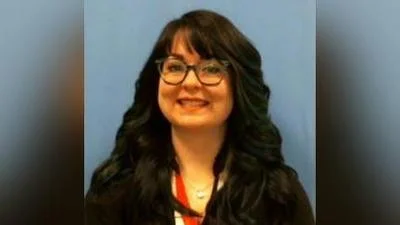Ahmet Atay | The College of Wooster
Ahmet Atay | The College of Wooster
Mentoring is an important and personal topic for Ahmet Atay, professor of global media and digital studies, communication studies, and women’s, gender, and sexuality studies at The College of Wooster. He has devoted a lot of time to mentoring students and faculty members from historically marginalized backgrounds and has seen how mentoring, or lack thereof, can positively and negatively impact students’ and faculty members’ academic lives.
“Lack of mentoring or mentoring styles that cause harm to Black, Indigenous, people of color, international and queer faculty and students is very damaging for these groups. People often do not know how to mentor students and faculty who have intersectional identities,” Atay said.
The media, visual culture, film, and cultural studies scholar used his experiences to co-edit with Diana Trebing an academic book, Mentoring in Intercultural and International Contexts. In the book, Atay and Trebing present a selection of essays that articulate the importance of mentoring and how to mentor students and faculty in intercultural contexts. They argue that sharing stories of people who have not received meaningful mentoring is important to make invisible structures visible in higher education.
The book “provides compelling examples of critical mentoring partnerships and programs that successfully assist vulnerable students to navigate systemic disadvantages within the academy. It is vital reading for anyone who wants a better understanding of mentorship in complex and contradictory environments,” said Alberto González, professor of communication at Bowling Green State University.
The book features 11 essays from established and up-and-coming scholars in the field. One of the essays in the book is co-written by Atay and Jimmy A. Noriega, professor of theatre and dance at Wooster. They have worked together for years on a range of diversity, equity, and inclusion topics at Wooster; however, the essay is their first formal scholarly collaboration.
Atay and Noriega’s essay, which focuses on queer mentoring in a liberal arts context, recognizes that often queer students and faculty are not mentored and are left to tackle the hurdle of academic life alone. They call for meaningful and productive campus-wide conversations about how to better support queer students and faculty. In the essay, Atay and Noriega state, “Queer mentoring is an intergenerational web and network which is created and sustained through queer storytelling and gathering. It is about carving out a space—a queer homeplace—within academic structures and cultures to cultivate a queer kinship and perform intersectional queer world-makings.”
“Mentoring and meaningful support is an important topic for me because I experienced how much damage the lack of mentoring can make one’s academic trajectory,” Atay said. “I want to do my best to change oppressive structures that further disadvantage marginalized students and faculty. The change often starts with meaningful, honest, and supportive mentoring.”
Original source can be found here.


 Alerts Sign-up
Alerts Sign-up